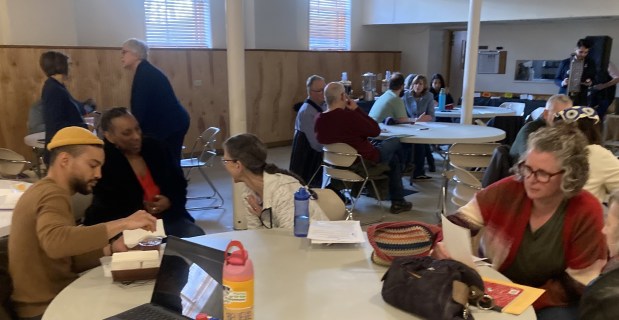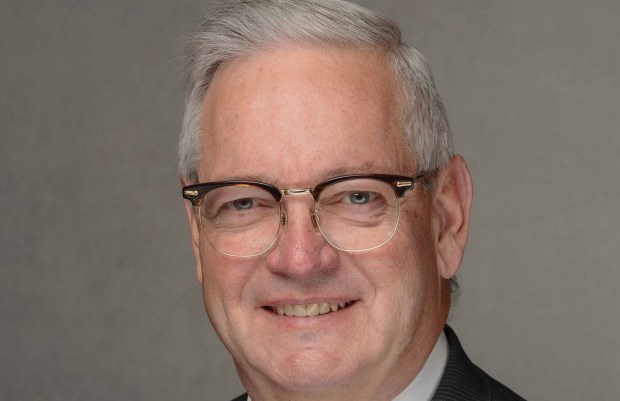People in Lake County using public transportation want to find the easiest and quickest way to get where they are going, be it by bus or train. Many want the modes of transit to be as environmentally friendly as possible.
Members of the Illinois General Assembly, with support from public interest groups like the Sierra Club, the Illinois Environmental Council, the Climate Cabinet and others, are trying to create the organizational structure and funding to make it happen.
Now operated by four separate agencies — Pace, Metra, the CTA and the Regional Transportation Authority (RTA) — in a six-county area around Chicago, there is legislation pending in the state legislature to transform the quartet into a single agency.
Known as the Metropolitan Mobility Authority Act (MMA), Michael Podgers, the Midwest policy lead for the Climate Cabinet, said a unified agency could coordinate schedules and fares to make a trip more efficient and less time-consuming.
“Right now, a bus will show up right after a train leaves,” Podgers said. “A coordinated schedule will have the bus arrive five minutes before the train, and wait five minutes after it arrives so the people getting off the train can board the bus.”
Podgers was one of two activists and eight state legislators to speak at a Transportation Town Hall Wednesday in Waukegan, explaining the current state of public transportation in northeast Illinois and how it can be reformed in an environmentally positive way.
Dany Robles, the climate policy director for the Illinois Environmental Council, said his trip from his home in Chicago to Waukegan was an example of the possibilities. He took a bus to a CTA train, and then boarded a Metra train to Waukegan.
“It was a short walk here (to the Christ Episcopal Church) from the station,” Robles said. “In any form, taking public transportation will reduce greenhouse gases. The more people use it, there will be less cars on the road.”
Along with creating a more efficient system, public transportation locally and nationwide is facing a fiscal cliff. When people stopped using public transportation during the coronavirus pandemic, federal funding covered the shortfall, keeping it afloat.
State Sen. Ram Villivalam, D-Chicago, introduced the MMA in January. He said ridership is increasing, but fares are not enough to cover the $771 million differential needed to keep the trains and buses running. Even more is required for the future.
“Federal funding will run out by 2026,” Villivalam said. “We don’t (yet) know how to fill the gap for next year. We need $1.5 billion to get to 2050. That’s our goal. We need $1.5 billion, not $771 million.”
Public transportation needs to be as energy-efficient as possible, but state Rep. Laura Faver Dias, D-Grayslake, said it needs to be more. Plans must be equitable, enabling the people who most need to use buses and trains to do so.
“It has to be accessible, affordable and energy-efficient, and reach our most vulnerable population,” Dias said. “It’s a question of equity and accessibility. Those with low income and with disabilities need it. They are among our most vulnerable.”
“It has to be safe, equitable and sensible,” added state Sen. Adriane Johnson, D-Buffalo Grove.
Chair of the state Senate Transportation Committee, Villivalam said having four agencies managing public transportation in the Chicago area is not the most efficient method. It worked 50 years ago when it was formed. He is looking at something that will be sustainable through 2050.
“We need to look at what will work, what level of funding is needed and how is it going to be funded. There needs to be coordination between Pace, Metra and the CTA,” Villivalam said. “All the people want is to get from point A to point B.”
State Rep. Rita Mayfield, D-Waukegan, made it clear what she wants to see when the MMA bill gets to the House of Representatives chamber. She wants to see an agency that does not include the RTA.
“The RTA is very, very Chicago-heavy,” Mayfield said. “There are bus drivers in Chicago making over $300,000 a year because of overtime. The system is broken. How are we going to fix it? People want to get from point A to point B, and do it efficiently.”
Along with Lake County, the others included are Cook, DuPage, Kane, McHenry and Will counties.




